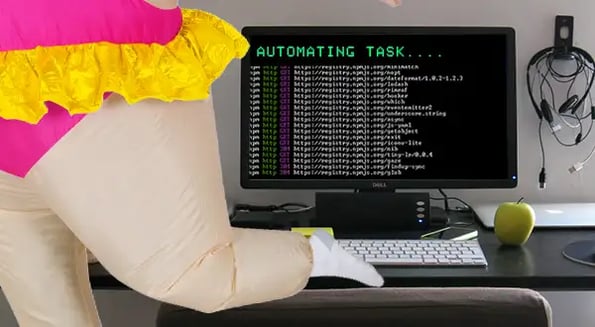Several years ago, a user by the name of “FiletOFish1066” unloaded a shocking tale in an anonymous reddit post: He’d written a program that automated his own QA testing job — and for 6 years, had done “jack sh*t at work.”

“For 40 hours each week I go to work, play League of Legends in my office, browse reddit, and do whatever I feel like,” he wrote. “In the past 6 years I have maybe done 50 hours of real work.” Eventually, FiletOFish1066 was caught, and promptly fired.
His plight raises an interesting philosophical question: Should workers be permitted to automate their own jobs?
Corporations automate jobs, so why can’t you?
Per an estimate from the McKinsey Global Institute, as many as 800m jobs — including 30% of American jobs — will be automated by 2030.
Robots now make our pizzas, serve us coffee (at a rate of 120 cups per hour), and everyone from Amazon to McDonald’s is investing heavily in automated labor.
One of the celebrated benefits of automation is that it will reduce the amount of time we spend working. But, when workers figure out a way to automate their own jobs, that’s often not the reality.
The reward for efficiency? More work.
There’s a famous scene in the 1936 film Modern Times, where the harder Charlie Chaplin works on the factory line, the more work he has to do.
Today’s workplace isn’t far off: Companies place a premium on speed and efficiency — but when workers (like this one) deliver by automating their jobs, they just get saddled with additional tasks.
The Atlantic recently talked to a dozen people who claimed to automate their jobs; nearly all were afraid to tell their employers. “Even if a program impeccably performs their job,” writes the magazine, “many feel that automation for one’s own benefit is wrong.”
We’ll leave it with a question: If you figure out a way to satisfactorily complete 8 hours’ worth of tasks in 10 minutes, should you: A) Get the rest of the day off, or B) Have to take on additional work?

